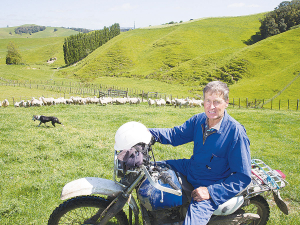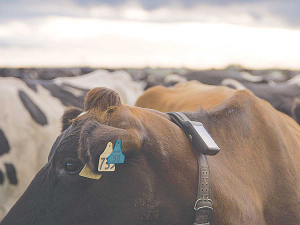OPINION: While the Paris Agreement is often cited by those opposing emission pricing, they have failed to note that the United Nations Framework Convention on Climate Change and the Kyoto Protocol have similar requirements.
The objective of the UN Framework Convention is the stabilisation of greenhouse gas concentrations within a timeframe that allows ecosystems to adapt, to ensure food production is not threatened and to enable economic development to proceed in a sustainable manner.
Under Article 2 of the Kyoto Protocol, each party is required to implement policies and measures such as the promotion of sustainable forms of agriculture. Also listed is the reduction of methane emissions from waste management and fossil fuels, but no measures are required for reducing emissions from ruminants.
Under the Paris Agreement there are two relevant obligations with regard to food production. In the preamble the parties to the agreement recognised, “the fundamental priority of safeguarding food security and ending hunger, and the particular vulnerabilities of food production systems to the adverse impacts of climate change”.
Food security and hunger are international obligations for which we are well placed to contribute. Our unique temperate and maritime climate makes us more resilient to the adverse impacts of climate change in producing food than most other countries.
Again, in Article 2.1(b) is the obligation to foster low greenhouse gas emissions in a manner that does not threaten food production.
In summary, NZ farmers should do all they reasonably can to reduce emissions without being forced to reduce the area of pasture and livestock numbers.
The point that has been missed is that these same international obligations are embodied in the purpose statement of our Climate Change Response Act 2002. As such, the meaning of the rest of the Act “must be ascertained from its text and in light of its purpose and its context”, in accordance with the Legislation Act 2019, giving the purpose statement special importance.
In contrast, the Government proposes that the primary consideration is ensuring emission reduction targets are achieved and that other factors such as socioeconomic impacts are only secondary considerations. If there are no approved mitigations, targets can only be achieved through reducing food production. If the Government persists with this approach, they face the risk of judicial review on the basis that it is inconsistent with the purpose of the Act, that a “target” is something to aim for rather than to be achieved at all costs.
That is the fleas part of the story. Now for the dog that is the HWEN proposal.
Farm-level reporting is hugely complex in that it requires reporting of all livestock tallies, weights and production as they change throughout the year – including all purchases, births, sales and deaths.
Not only does that involve farmers in a lot of reporting. It also involves the regulator doing a lot of auditing and enforcement, the costs of which will be levy-funded by farmers. That in itself will force some farmers to the wall.
If and when mitigations are approved, the levy rates will have to be high enough to incentivise farmers to uptake the mitigations and to fund the incentive payments. An increase in levy rates will be required, resulting in more financial hardship.
Good on Federated Farmers in taking on board these matters in their submission and calling for a pricing system that only incentivises mitigations so that food production and emission leakage are not threatened. Meanwhile, DairyNZ, Beef+Lamb NZ and the HWEN partnership have merely rearranged the deck chairs on the Titanic in spite of being told the ship has sprung a leak.
Are they being advocates for farmers or will they provide the Government with a foil to deflect farmer submissions?
The role of emission pricing should be confined to only incentivising mitigations as submitted by Federated Farmers.
This approach by no means gives farmers a reason to do nothing in response to the climate crisis we face. It is an approach we can take to our markets and use in trade negotiations with pride as it is entirely consistent with our legislation and international obligations.
Graham Pinnell is a retired Cambridge drystock farmer and has faced judicial reviews as a member of two Crown regulatory agencies.











